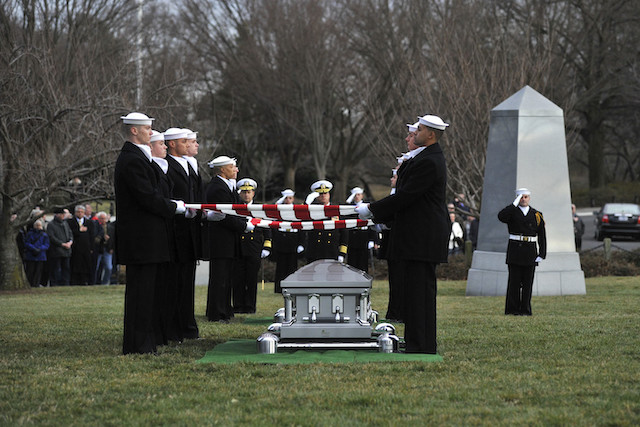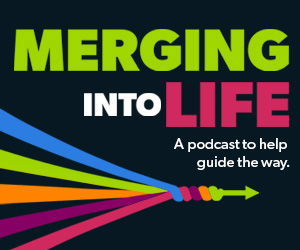Losing a loved one is one of life’s most difficult and painful experiences. But along with the emotional toll, there’s also the very practical matter of settling the person’s affairs. The truth is, there are quite a number of steps you must take to fully close out a person’s life after they pass. This process shouldn’t be taken on alone. You’ll need the help of friends, family members and professionals.
It’s hard to have to think about what to do when a loved one dies. Take it step by step with the help of this guide.
Get a Legal Pronouncement of Death
The first step to take when a loved one dies is to get a legal pronouncement of death. This should as soon as possible, according to the National Institute on Aging. The document is filled out by a medical professional, officially declaring the person has passed away. (It is not the same as a death certificate.) Without this document, you will not be able to plan funeral arrangements or handle the deceased’s legal affairs.
If your loved one dies at a hospital, nursing home or under hospice care, the staff will take care of this step. If they pass away at home, however, you’ll need to call 911. Paramedics will transfer them to the emergency room, where they will be legally pronounced dead.
Notify Others
Your first instinct in the immediate aftermath of a loved one’s death will be to inform others. But consider limiting this to close friends and family. Then ask those people to help spread the news. This will take one task off your plate.
While it doesn’t need to be an immediate phone call, Consumer Reports recommends contacting your loved one’s employer if they were still working at the time of their death.
Secure and Maintain the Property
If no one is residing at the deceased’s home, make sure the property is secured and maintained by a relative, friend or neighbor. This includes locking all doors and windows on the house and cars, collecting mail, throwing out food, watering plants and keeping on a minimal amount of heating to prevent frozen pipes, if needed. If your loved one had pets, arrange for someone to care for them for the short-term future.

Make Funeral Arrangements
Your loved one may have had a prepaid burial plan. If so, most of the arrangements will already be set. If there’s no plan in place, contact the funeral home of your choice. They can help walk you through the process. One important decision the family will have to make is whether to cremate or bury the body.
If the deceased was a member of the military, contact the Department of Veterans Affairs to see if you are eligible to receive burial benefits. According to the VA, it pays survivors up to $2,000 to cover funeral costs. Your loved one may also be eligible for a military funeral service.
Ask friends and family members if they would like to participate in the funeral services as a pallbearer or to eulogize your loved one. You may also want to write an obituary.
Obtain the Death Certificate
The funeral home you are working with will usually provide a death certificate. It’s important to get multiple copies. Most experts say you should obtain up to 10 copies. You’ll need to provide one to financial institutions, insurance companies and government agencies in order to settle your loved one’s affairs.
Settle the Estate
If your loved one had a will, the executor named in the document will be in charge of settling the estate. If there is no will, a probate court judge will name an administrator in lieu of an executor. Either way, it’s likely you’ll need assistance as distributing assets can be a complicated task. An estate attorney can help you navigate the process.
Contact the Appropriate Agencies
Over the preceding few weeks, it’s important you contact the appropriate government agencies, financial institutions and service providers. This may include:
Social Security Administration: In most cases, the funeral home will report the death to the Social Security Administration. If your loved one was receiving benefits, however, you should contact SSA as soon as possible to stop payments. Any monthly payments received after their death will have to be returned. Certain family members, such as widows or widowers, may be eligible to receive the benefits going forward.
Life insurance companies: You’ll need to contact your loved one’s life insurance company to file a claim on any policies they had. Make sure to have the policy numbers and a copy of the death certificate on hand.
Credit agencies: The Social Security Administration will notify the three major crediting agencies of your loved one’s death but it’s a good idea for you to do so as soon as possible. This will get the account flagged., helping prevent identity theft. You’ll also then receive a copy of the deceased’s credit report, which will give you a clear understanding of their credit accounts and any outstanding debt.
Worried about having your identity stolen? AAA offers members free identity protection.
Banks and financial institutions: Contact banks to see what accounts and safe deposit boxes your loved one had. You will need a copy of the death certificate to close or change any accounts.
Department of Motor Vehicles: Cancel your loved one’s driver’s license to prevent identity theft. The process varies by state, but you’ll likely need a copy of the death certificate.
Social media: You can submit a request to have your loved one’s social media accounts removed following their death. Certain platforms, such as Facebook and Instagram, offer the option of having the account memorialized. ConsumerResources.org’s guide walks you through the process on each platform.
Utility companies, the U.S. Postal Service, subscription services: Notify these providers to change or stop services.
Head to AAA.com for more on navigating all of life’s stages.

















